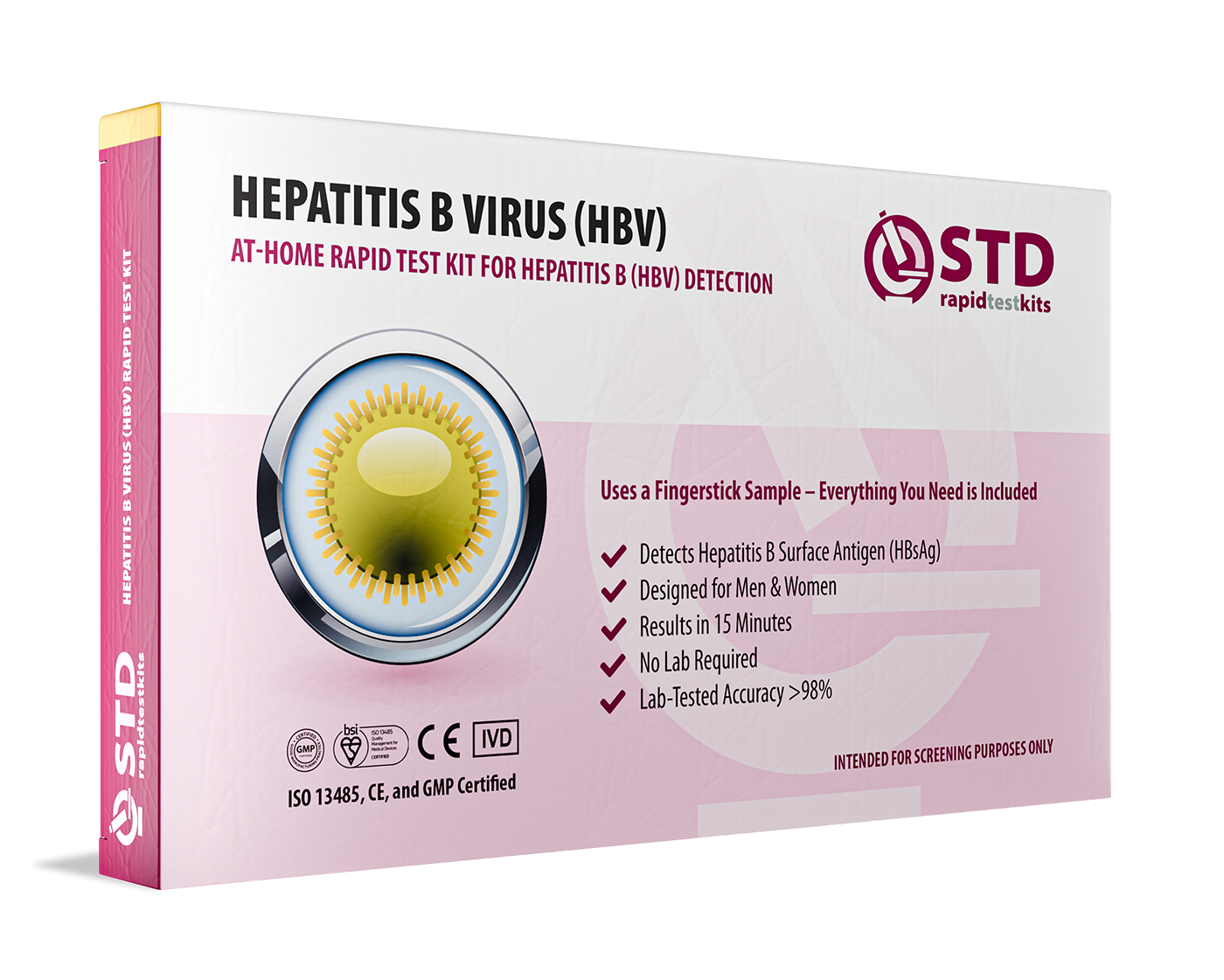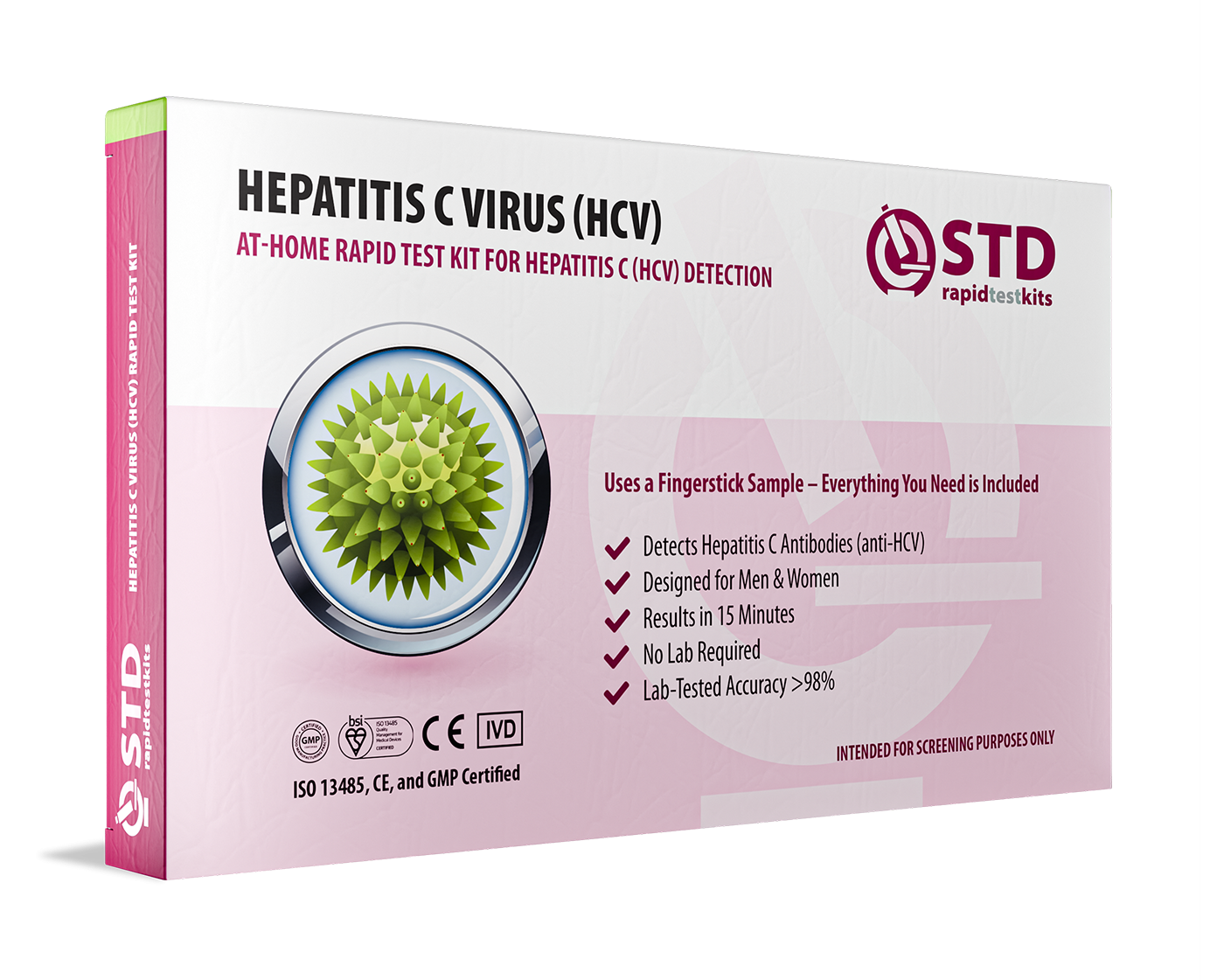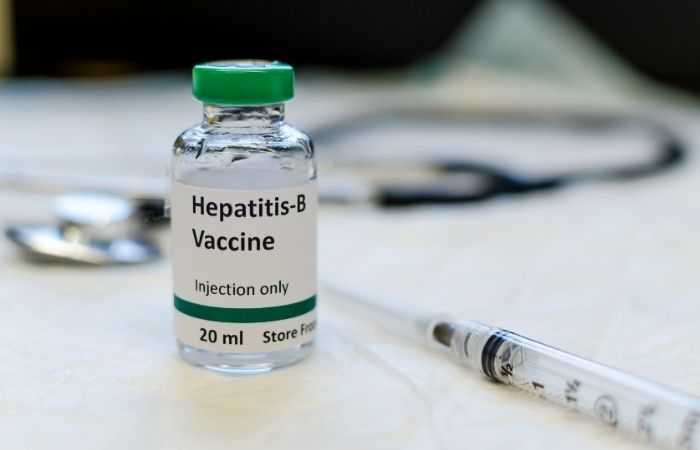Quick Answer: No, you can't get hepatitis B from kissing unless there is blood involved, like bleeding gums or sores. Hepatitis B spreads through blood, semen, vaginal fluids, and sometimes during birth, not saliva, sweat, or hugs.
Where the Fear Comes From, And Why It Lingers
Hepatitis B isn’t just a virus, it’s a mystery to many. Most people lump it in with hepatitis A or C, or think it spreads like a cold. Others assume it only happens to people who use drugs or have “risky” sex. The result? A swirl of myths that lead to fear, shame, and sometimes even broken relationships.
Let’s get one thing straight: hepatitis B is a virus of the liver, not a moral failing. It can affect anyone, from newborns to long-term monogamous partners. And while it’s serious, it’s also preventable, treatable, and often manageable with early care.

People are also reading: Why That Rash Won’t Go Away, And Might Be Syphilis
The Medical Truth: How Hepatitis B Actually Spreads
Let’s clear this up, because the internet is full of bad answers and worse vibes. Hepatitis B is real, it’s serious, and yes, it spreads. But not the way people love to whisper about at parties.
The actual science? Hep B is passed through blood-to-blood contact, unprotected sex, and during childbirth. Think: sharing needles, razors, or having sex without a barrier, vaginal, oral, or anal. That’s where the real risk lives.
So what about kissing? That’s where things get messy in the myth department. Technically, saliva alone isn’t enough to transmit hepatitis B. Your spit isn’t dangerous unless there’s blood in it, and there’s got to be a way in, like a cut, sore, or inflamed gums. If both people have open wounds in their mouths and there’s blood involved, then yes, it’s possible. But casual kissing? Not a thing. The CDC, WHO, and Planned Parenthood all say the same: kissing isn’t how this spreads.
So no, you don’t need to panic over shared drinks, toilet seats, or a quick makeout. Save your stress for the things that actually matter, like testing after real exposure, not hugging someone who’s positive.
“I Thought I Got It from a Kiss”: Real Stories, Real Confusion
Andres, 29, shared a kiss with someone on a second date. Two months later, his doctor said he had hepatitis B. He panicked.
“I hadn’t had sex yet. We only kissed. I googled like crazy. I felt sick to my stomach, literally and emotionally.”
But here’s the thing: the kiss wasn’t the source. A deeper look at his health revealed he’d had a dental procedure abroad where equipment may not have been fully sterilized. That’s how transmission likely occurred, not the kiss.
Confusion like this is common. That’s why we need to talk about the myths, not just the facts. Because fear thrives when facts are fuzzy.
Let’s Kill These Hepatitis B Myths Already
Hepatitis B comes with more myths than facts sometimes, so let’s clear the air.
No, you can’t get it from kissing, unless there’s blood involved from sores or bleeding gums. Saliva on its own isn’t enough. Same goes for sharing drinks or utensils. Totally safe.
It’s also not just something that happens to drug users or sex workers. Anyone can get exposed, from sex, sure, but also from a medical procedure, childbirth, or using someone else’s razor.
And if your partner has it? That doesn’t mean you’re guaranteed to catch it. With vaccines and protection, many couples stay together for years without passing it on.
Most importantly, hepatitis B is not a death sentence. With treatment and regular care, people live full, healthy lives. Don’t let fear, or misinformation, keep you in the dark.
Check Your STD Status in Minutes
Test at Home with RemediumHepatitis B Test Kit

 For Men & Women
For Men & Women Results in Minutes
Results in Minutes No Lab Needed
No Lab Needed Private & Discreet
Private & DiscreetOrder Now $33.99 $49.00
So What’s Actually Worth Worrying About?
Forget the fear-mongering about kissing and coffee mugs. That’s not how hepatitis B works, and it’s not where your energy should go. If you want to protect yourself, it starts with asking the right questions, not obsessing over the wrong ones.
Have you been vaccinated? If not, it’s time. The hep B vaccine is safe, effective, and gives you long-term protection without needing to overthink every hookup or shared bathroom.
Sharing razors, toothbrushes, or anything that might carry even a drop of blood? That’s where caution counts. Same with sex, use condoms or dental dams if you’re not sure of someone’s status. And if you were born in or recently traveled to a high-risk area, especially where medical care was involved, talk to your doctor about getting tested.
What matters most is staying grounded. Myths make people feel ashamed. Facts keep people safe. You’re not dirty. You’re not broken. You’re just informed, and that’s powerful.
Should You Get Tested for Hepatitis B?
Short answer? Yeah, you probably should. The CDC now recommends that every adult in the U.S. get screened for hepatitis B at least once in their life. Not because something's wrong. Not because you’re “high risk.” But because hep B can hang out in your body for years without making a sound. And the earlier you catch it, the better your options.
If you’ve had unprotected sex with more than one partner, shared a razor or toothbrush, used injection drugs even once, or were born in a country where hep B is common, Asia, Africa, Eastern Europe, testing is an especially smart move. Same goes if your mom ever tested positive. This virus is sneaky, but you don’t have to let it be.
Testing is quick. It’s a simple blood draw that looks for hep B surface antigens and antibodies. You’ll usually get results in a few days, and from there, it’s just about next steps, treatment, vaccination, or peace of mind. Nothing scary. Just clarity.
The Vaccine Is a Game-Changer
If you’re not already vaccinated, it’s time. The hepatitis B vaccine is over 95% effective at preventing infection. It’s been around since the 1980s and is now part of routine childhood immunizations in many countries.
You can still get your shots as an adult. The schedule usually calls for 2 to 3 doses over the course of a few months. When you're done, you'll be safe for a long time, maybe even your whole life.
And here’s the kicker: Even if you were exposed to hepatitis B recently, the vaccine can still help prevent infection if given within a certain window. That’s why fast action matters.
Ask your doctor, or head to a sexual health clinic. Some pharmacies also offer hepatitis B vaccines without an appointment.

People are also reading: STD Symptoms You Might Have Ignored During Lockdown
What If You or Your Partner Tests Positive?
Don’t freak out. Hepatitis B is manageable, and it’s not a relationship ender.
First, find out if the infection is acute (new) or chronic (long-term). Acute infections frequently resolve spontaneously. Antiviral drugs and regular liver monitoring may be needed for chronic cases.
Many couples navigate hepatitis B together. If one partner is positive and the other isn’t, the uninfected partner should get vaccinated immediately. With proper care, there’s no need for panic, isolation, or breaking up.
Why Saliva Isn’t the Enemy
We get it, saliva feels risky. It’s bodily fluid. It moves during kissing, oral sex, and even close talking. But when it comes to hepatitis B, saliva on its own is not enough.
The hepatitis B virus needs a way to get in. That means blood contact, or a break in the skin or mucous membranes. Saliva has low concentrations of the virus, and in most situations, it never reaches a high enough level to transmit infection.
That’s why casual kissing, food sharing, and even mouth-to-mouth CPR aren’t risky. Unless there’s blood involved, like if you or your partner have bleeding gums, cold sores, or a recent dental procedure, kissing won’t transmit hepatitis B.
You Can Feel Fine and Still Have Hepatitis B
That’s the part that trips people up. Hepatitis B often shows zero symptoms for years. No fever. No fatigue. No obvious red flags. Which is exactly why testing matters, not just for you, but for the people you care about. Many folks who test positive feel totally fine. Until suddenly, they’re not.
Early screening catches silent infections before they start messing with your liver. It also protects your partners, your roommates, even future pregnancies if you're planning a family. And if the test comes back positive? That’s not the end of the world, it’s the start of care. You’ll know if you need treatment. Or if it’s time for a vaccine. Either way, you’re not flying blind anymore.
You can test through a doctor, a clinic, or right from home. Just make sure the test screens for HBsAg, that’s the hepatitis B surface antigen doctors look for. Reputable kits, like the ones from STD Rapid Test Kits, make it simple, fast, and private.
Check Your STD Status in Minutes
Test at Home with RemediumHepatitis C Test Kit

 For Men & Women
For Men & Women Results in Minutes
Results in Minutes No Lab Needed
No Lab Needed Private & Discreet
Private & DiscreetOrder Now $33.99 $49.00
Talking to Partners Without the Panic
Think you’ve been exposed? Or just want to check in with someone new? These conversations don’t have to be terrifying. Start with this:
“Hey, I’ve been learning more about hepatitis B. I think we should both check our vaccine status, just to be safe.”
It’s not about accusations. It’s about informed, consensual care. The more we normalize these talks, the safer, and less stressful, sex becomes for everyone.
Why Hepatitis B Isn’t a “Dirty” Disease
Let’s be honest, when people hear “hepatitis,” the word gets heavy. It carries stigma, judgment, and a whole lot of assumptions about how someone must’ve “caught it.” But hepatitis B is not a dirty disease. It’s a liver infection caused by a virus, one that moves silently, spreads easily, and doesn’t care about your sexual history, income, or moral standing.
You can get hepatitis B from being born to an infected parent. From sharing a razor in college. From a tattoo shop with lax hygiene. From your long-term partner, years after they were unknowingly exposed.
There’s no “type” of person who gets hepatitis B. But there is one type of person who manages it well, the one who learns the facts and takes action.
Who’s Really at Risk, and Why It Matters
Hepatitis B doesn’t care who you are, but knowing your risk can still save you a lot of stress, and maybe even your liver. Anyone can get it, but some people are more likely to cross paths with it. Not because they did anything wrong, but because of how life, sex, jobs, or family just happen.
If you were born in a country where hep B is more common, that’s one reason. If your parent tested positive, the virus can pass from birth. If you're a healthcare worker or first responder, it's part of the job. And if you’ve ever shared needles, even once, or lived with someone who has chronic hep B, that matters too. So does being a man who has sex with men, simply because of how the virus spreads, not who you love.
This isn’t about shame. It's about staying sharp. If any of that overlaps with your story, testing isn’t overreacting. It’s just being ahead of it.

People are also reading: What Men Need to Know About HPV, And Why Most Never Get Tested
Living with Hepatitis B Doesn’t Mean Isolation
A positive test doesn’t mean you’re toxic. Or unsafe. Or doomed to live in a bubble. With regular monitoring and, in some cases, antiviral treatment, most people with chronic hepatitis B live long, full, connected lives.
You can hug. Kiss. Have sex. Get married. Have kids. What matters is staying informed, vaccinated, and communicative.
What makes hepatitis B dangerous is not knowing. What makes it manageable is knowledge, community, and care.
Yes, You Can Get a Tattoo, and Other FAQs
Worried about tattoos or piercings? Here’s the deal: professional studios that follow infection control guidelines are safe. It’s unregulated, informal setups that pose a risk.
Same goes for barbershops, spas, and nail salons. If tools aren’t properly sterilized, viruses like HBV can linger on metal surfaces and enter through microscopic nicks in the skin. Always make sure your artist or tech uses new or sterilized equipment every time.
Check Your STD Status in Minutes
Test at Home with Remedium7-in-1 STD Test Kit

 For Men & Women
For Men & Women Results in Minutes
Results in Minutes No Lab Needed
No Lab Needed Private & Discreet
Private & DiscreetOrder Now $129.00 $343.00
For all 7 tests
FAQs
1. Is it possible to contract hepatitis B through kissing?
Not normally. Saliva does not spread hepatitis B unless there is blood present, such as in bleeding gums or sores.
2. Can I get hepatitis B if I share drinks or utensils??
No. Saliva or casual contact cannot transmit hepatitis B. It's safe to share cutlery, food, and beverages.
3. How does hepatitis B spread?
through vaginal fluids, blood, semen, and during childbirth, from mother to child. These days, the most popular routes are sex and sharing personal hygiene products.
4. Is hepatitis B a sexually transmitted disease?
It can spread through sexual contact, but that's not the only way. Additionally, it is transmitted during birth and through blood exposure.
5. Can hepatitis B be avoided?
Of course. The vaccine provides long-term protection and is both safe and effective. It's among the greatest resources for public health.
6. Should I have a hepatitis B test?
Yes. The CDC says that all adults should get tested at least once in their lives, and more often if they have risk factors.
7. Is it possible to treat hepatitis B?
Acute infections often resolve naturally.
8. If I have hepatitis B, can I still kiss or engage in intimate activities?
Yes, there's no reason to avoid intimacy once your partner has received their vaccinations or if you're abiding by safety precautions.
9. Does hepatitis B resolve itself?
Acute hepatitis B often resolves in 6 months. On the other hand, chronic hep-b requires long-term care.
10. What if I thought I was exposed?
As soon as you can, get tested and vaccinated. Infection can be completely avoided with early intervention.
Protect Yourself with Facts, Not Fear
Hepatitis B is real, but so is the power of science, testing, and prevention. You don’t need to fear kisses, utensils, or a shared home. You need information, agency, and the tools to stay healthy without panic.
Take back your peace of mind. This at-home combo test kit checks for the most common STDs, fast, discreet, and lab-trusted.
Sources
1. Planned Parenthood – Hepatitis B Overview
3. HepB.org – Hepatitis B FAQs










